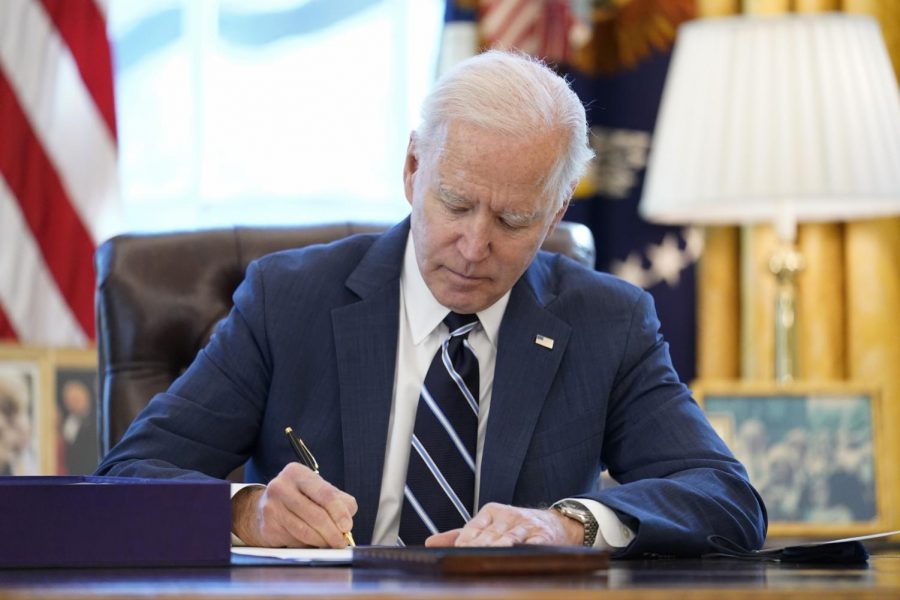President Biden’s aim for public education through new stimulus plan
January 24, 2021
Over the course of his campaign, newly elected President Joe Biden had repeatedly stressed the importance of education and in-person schooling for the positive development of students’ mental health in the face of the COVID-19 pandemic, and his new stimulus plan, unveiled on Jan. 14, highlights just that.
The $1.9 trillion package, titled the American Rescue Plan, devotes approximately $170 billion to a wide range of services needed for a successful reopening of primary and secondary schools across the nation, such as regularly testing educators and students and providing teachers with personal protective equipment.
If implemented, it will be the third such plan to add to the efforts of aiding education systems, with the first two plans, passed under former President Trump’s administration, contributing $30 billion and $82 billion in April and December of 2020, respectively.
This measure comes as millions of schools throughout the country were forced to shut down over the past year due to the COVID-19 pandemic, forcing educators and students to revert to online learning. Advocates of this plan stress the importance of brick-and-mortar learning to address the scores of students who have fallen behind in their studies as a result of the pandemic.
Even more, the mental toll that students are facing in these unprecedented times is evident, with psychiatric-related visits among young children from March to October in 2020 going up 24 percent from the same time period in 2019, according to a report on virtual learning by the Centers for Disease Control and Prevention.
Biden, in regards to his proposed package, stated during a public announcement on Jan. 14 that “We (must) give school districts, communities and states the clear guidance they need, as well as the resources they will need that they can not afford right now because of the economic crisis we are in.” He aims to make education a priority in his first few months of term, adding that he would like to have the majority of K-12 schools open within the first 100 days of taking office.
There has been widespread approval across the nation over the emphasis on education that Biden’s proposal brings.
Becky Pringle, president of the United States’s largest teachers union, the National Education Association, said “Educators are encouraged not only by President-elect Biden’s leadership, but also in knowing that there is finally a true partner in the White House who will listen, value the ideas, and act in the best interest of students, educators, and families.”
Still, Biden has acknowledged the large scope of his package, which is unappealing to many congressional Republicans and economists. They argue that such a colossal package will lead to a critical deficit in the federal budget, which has already increased to $28 trillion over the course of the pandemic, and even more, to high inflation prices that many Americans will not be able to afford.
Jim Paulson, the chief investment strategist of the Leuthold Group, said that this plan “could result in a very severe recession again quite quickly, not this year but in 2022 or 2023, and if it does it’s going to end up hurting the same groups that everyone is trying to help today the most.”
However, Biden refutes that this size is essential to healing the nation’s youth from the anxiety that this pandemic has wrought on them.
“I know what I just described will not come cheaply. But failure to do so will cost us dearly,” said Biden.



